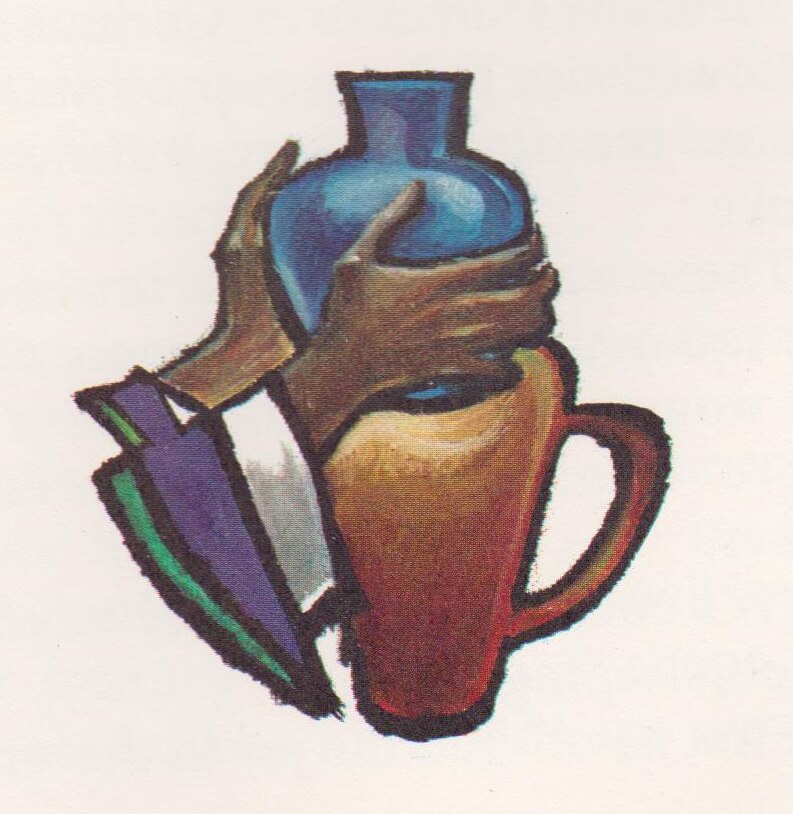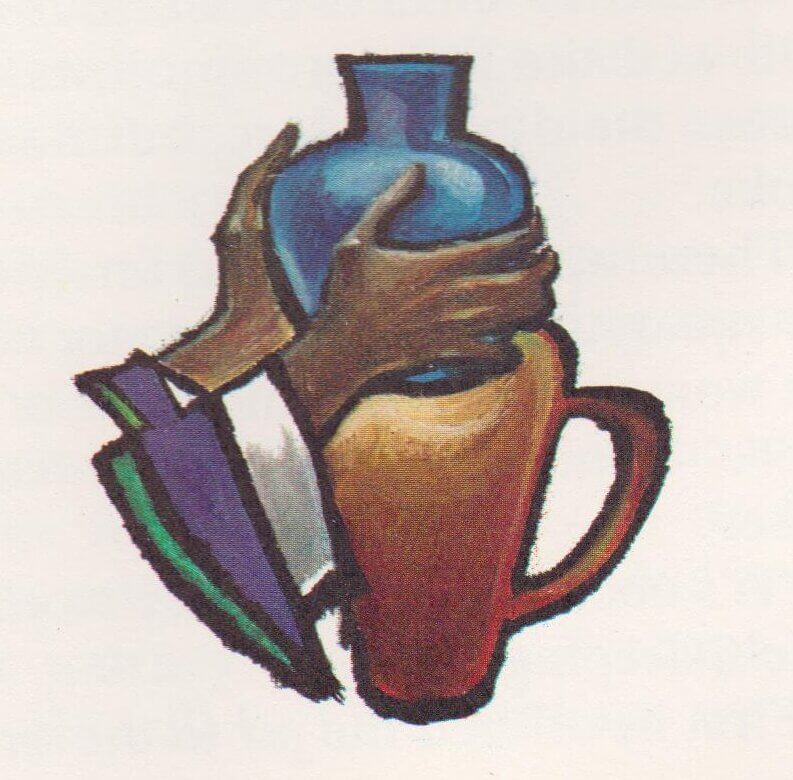Some Way Forward for Prophetic Catholicism
Patrick Jamieson, Victoira
Volume 35 Issue 10, 11 & 12 | Posted: December 23, 2021

Richard Shields letter, printed in the “Letters to the Editor” section, raises the salient questions for ICN as we move ahead beyond our thirty-fifth year.
Historically ICN has been through many stages of development. Is it possible for the spiritual journal which has evolved from a monthly diocesan newspaper started in 1986, to a more investigative bimonthly after 2004, to the broader more prophetic progressive paper you hold in your hands.?
Clearly another stage of evolution is possible and desired as Richard Shields delineates so helpfully.
When the Prairie Messenger announced it would be folding five years ago, this left ICN as the last of four progressive Catholic newspapers across Canada. When it started in 1986, Catholic New Times (CNT) out of Toronto (see article entitled “Phoenix Project: Can a New Catholic New Times Rise from Ashes (15 years after) in the “Main Feature” section) and the Western Catholic Reporter, out of Edmonton, were two newspapers that sprang out of the need after The Second Vatican Council (1962-65).
Now, all three vibrant vehicles are history but the need for progressive news remains. What form should it take? Ted Schmidt one of the last editors of CNT insists it must be digital in this age if it is to reach younger people. (see above-referenced story)
In response to the shocking disappearance of the Prairie Messenger, (after more than a hundred years of publishing) based in the seemingly eternal monastic setting in Muenster, Saskatchewan, a decision was made to explore the possibility, especially in that province, for new creative responses to this need for progressive Catholic journalism.
As Richard Shields mentioned in his letter, regular exploratory cross-Canada trips have ensued, involving meetings with pockets of progressive Catholics from B.C. to the Maritimes including sage Ted Schmidt. The last few years of ICN have reflected these exploratory developments.
Unfortunately some trips have been cancelled due to forest fires, Covid 19, flooding, car accidents and ill health but the idea is still alive and plans are still in place for an in-depth consultation in Saskatchewan as soon as feasible. So, on that level, the Phoenix project is alive and well.
It is clear that the Catholic Church, particularly in North America, seems to be in a state of civil war with the American bishops resistance to the Pope Francis program. His very program of a global synod with its grassroots consultation and the social relevance of the pope’s teachings on climate change, immigration and refugee issues, gives a welcome thrust to the whole agenda of progressive journalism and prophetic action which it promotes. The papal visit in the context of the Indigenous reconstruction crisis is another major theme and progressive Catholic agenda item.
The question that Richard Shields raises about the ageing of this concerned and concentrated population cannot be avoided.
MID-LIFE
While it is clear that we cannot expect any giant resurgence of those under fifty to the rolls and ranks of the church, however we picture that theologically. This is not discouraging when one looks at the sorts of distractions, preoccupations and issues that take up youthful energy. Climate, race and gender are all serious questions of diversity that the Catholic Church needs to creatively explore. (see the “Lead Story” and the “Other News” story entitled “The Faith Role: Glasgow March for ‘Global Day of Climate Action’ )
Richard Renshaw’s excellent new book Dealing with Diversity: Questions for Catholics is to be published by ICN in the new year. It is an enlightening examination of those areas of renewal and challenge to Catholicism that progressive Catholicism relishes undertaking. (see excerpt in the “Literary/Arts” section)
Father Renshaw is part of a persistent group of socially and theologically progressive Catholics I have been associated with since the 1960s in New Brunswick. We meet by Zoom every three weeks or so, currently focusing on the Global synod after spending six sessions on The Diversity book, chapter by chapter.
The group includes a retired federal civil servant in Ottawa, Father Renshaw in Niagara where he lives in a community house, my sister Christine, a Christian ethics professor in Montreal at Concordia, a pastoral educator now based in Talca, Chile, a philosophy professor in rural New Brunswick and a lay peace educator and author in Toronto
The collective history of this group seems like a miniature of the progressive post-Vatican II church. It seems a special grace to still be working together after 50 years. As a university professor Father Renshaw inspired and accompanied a number of us to engage in social justice work in rural New Brunswick.
This evolved into living in a network of Christian Intentional communities in the Maritimes and Toronto, a network that included the inter-church coalitions including the future Cardinal Michael Czerny, SJ, who as an activist priest officiated at the wedding of one member.
We have all kept in touch due to our common program of Catholic action and reflection reflected in Dealing with Diversity, including working with poverty groups, inshore fishermen and small woodlot owners in rural New Brunswick, as well as urban pastoral work in Canada and Latin America. The Synod renewal process called by Pope Francis has now provided an exciting focus and this aspect of The Phoenix Project is part of ICN’s response to that process.
My own analysis of how to attract younger people into these faith journeys includes a Jungian analysis that after the age of forty, life changes radically. As Jung puts it, the morning is not the same as the afternoon of life. The preoccupations of the first half of life have to be transformed to focus on the spiritual dimension.
Young cynical scepticism can give way to a fresh openness to other wisdom systems beyond science and finance, the main contemporary ‘religions’ of the 20th Century. We are in the midst of a paradigm shift and Catholicism as a system and a way of life increasingly is capturing the world’s imagination.
Traditional Catholicism seems entirely passe to younger generations. They are seeking a challenge to do with saving the planet, being true to their own instincts and self and raising their family in a manner integral to their arrived-at personal values. Prophetic Catholicism provides a more relevant program for the agenda of the future generations. Leadership training and collaborative action and reflection are what is needed.
We are not concerned here with mass conversion so much as progressive leadership development in whatever form that takes in varying regions of the country – urban Ontario, small city Prairies, rural Maritimes or BC secular leftist city states.
Island Catholic News was founded in good part in the mid 1980s to facilitate the Diocesan Synod called by Bishop Remi De Roo. It was a ten-year process before the diocese was formally proclaimed a synodal church.
In this sense Victoria with its People’s Synod between 1986 and ‘95 has developed a possible model for other parts of the church. It was a serious in-depth five years of listening to the grassroots and discerning and decision-making of a way forward. A comprehensive book was published by Grant Maxwell of the process.
Bishop De Roo will be 98 in February and he still inspires those he educated in this model of church. He has recently entered a late stage of health decline but has been located to the Catholic chronic care nursing hospital in Victoria so is surrounded by those who revere him.
He is a symbol of what we are attempting.
Patrick Jamieson, Victoira

